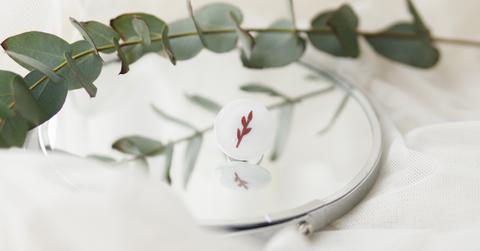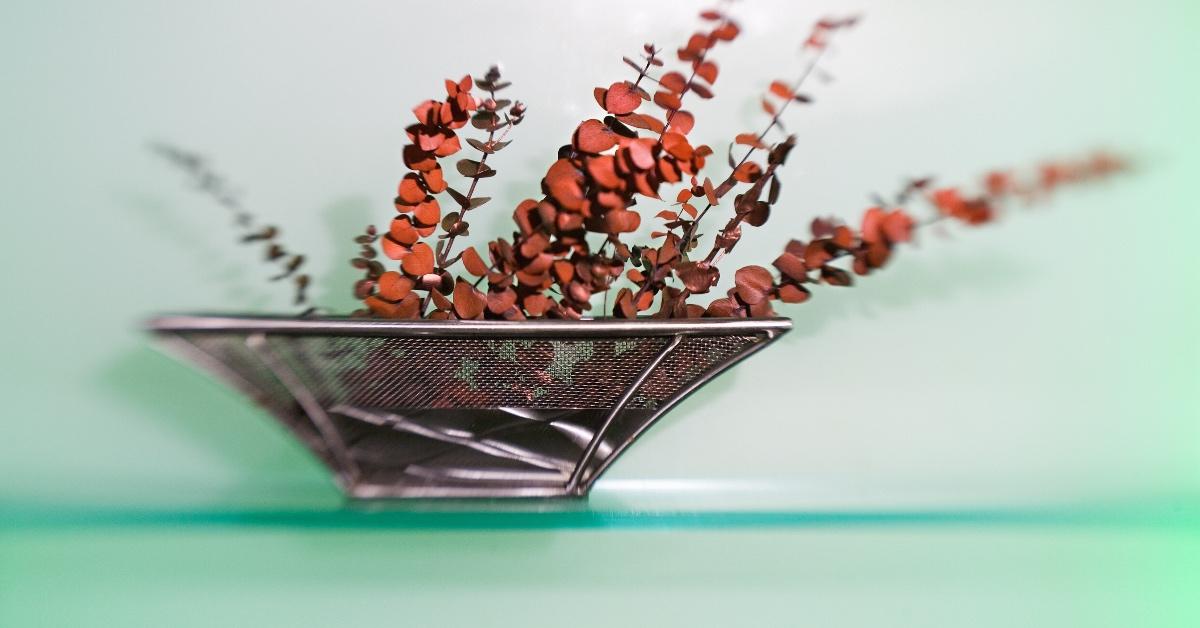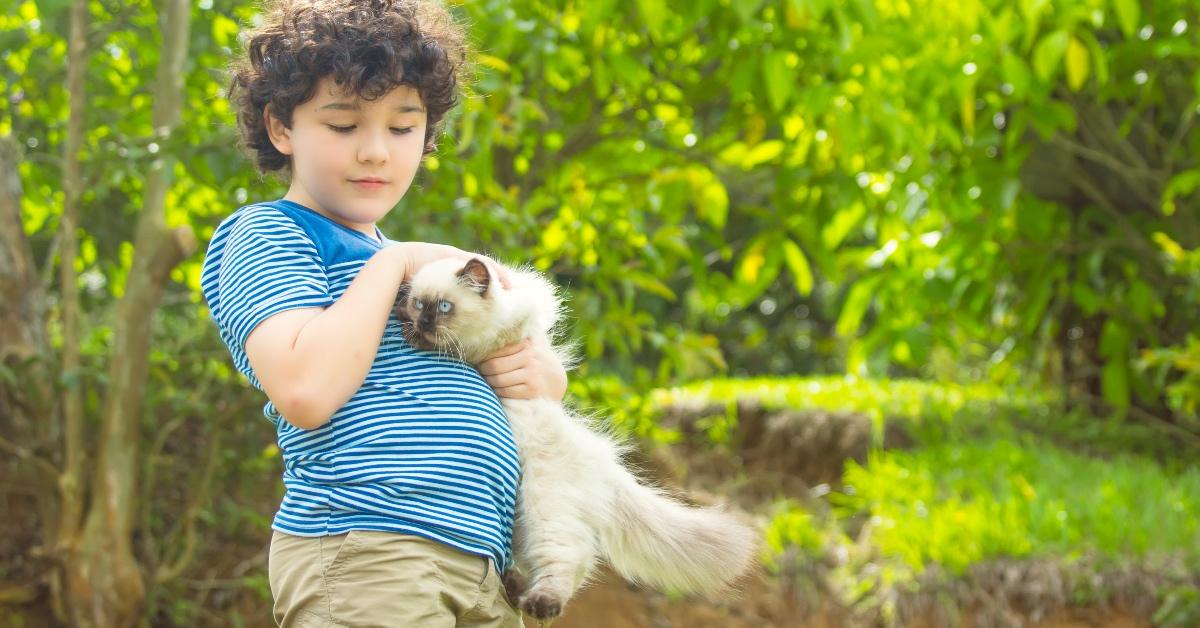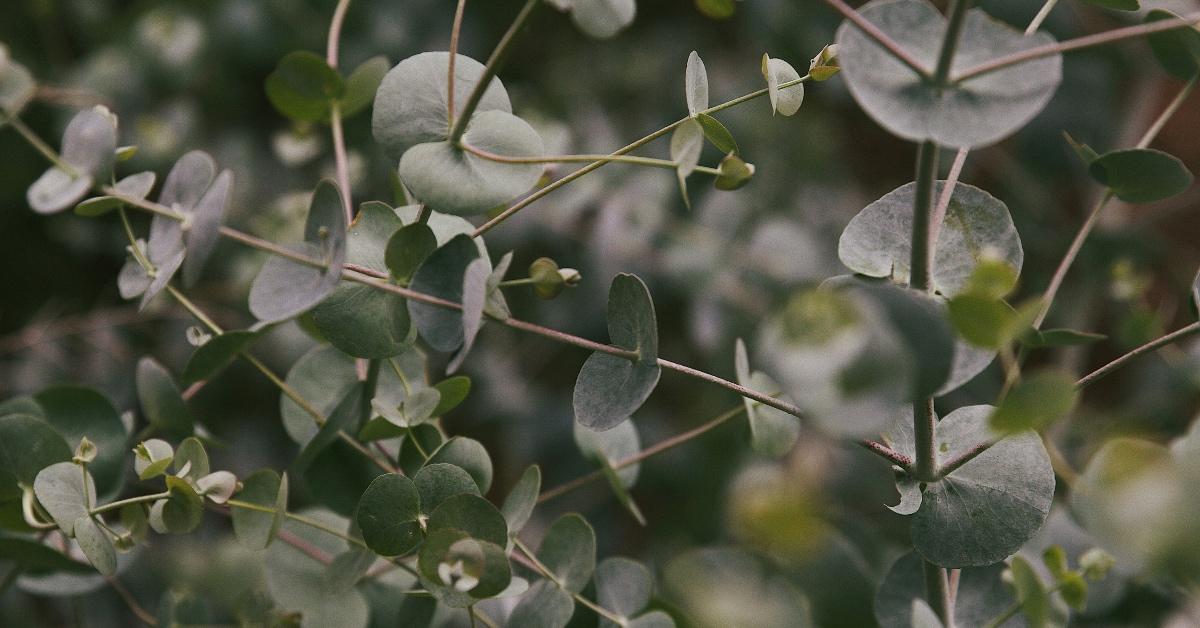Eucalyptus Has Many Benefits For Humans — But Here's Why Cats Should Stay Away
If your cat ingests eucalyptus, they could experience severe side effects.
Updated Oct. 23 2024, 10:11 a.m. ET

As a cat parent, investing in eco-friendly pet supplies and reevaluating the locations of fragile vases are just a few ways you can start accommodating your four-legged friend. If you're a plant parent, too, it's important to always ensure that your home is fitted with non-toxic plants.
Eucalyptus is a popular additive to any home as a piece of decor, a shower accessory, or essential oil. But is eucalyptus safe for cats? Here's what you need to know about which plants and oils are safe for felines, and which pose a severe health risk.
Is eucalyptus safe for cats?
While there's a wide range of plants and flowers cats will undoubtedly get hooked on, including zinnias, marigolds, rosemary, bean sprouts, and catnip, a wide range of plants can pose a real threat.
"Cats love to sleep among the plants, play, and watch the world go by," veterinarian Dori Slater told Los Angeles Times. "A garden relieves boredom, especially if the owner is away at work all day."
Eucalyptus is one of the plants new cat owners should stay away from. Exposure to the plant in whichever form can cause symptoms ranging from nausea and vomiting, to "seizures and collapse," per an article by Tuxedo Cat.
To make matters worse, it's not only the plant that can cause problems. If the cat enters into contact with eucalyptus in its essential oil form or in a dried bundle, they could still come down with potentially life-threatening symptoms.

Cats are unable to digest eucalyptol, the chemical responsible for its unique smell.
It's not only the eucalyptol found in the eucalyptus plant and essential oil that's dangerous for cats. The same goes for tea trees, tea tree oil, and cannabis sativa — so yes, cats can produce adverse reactions to weed, too.
"I have a dog and eucalyptus I think is toxic to either dogs, cats, or both. but I'm going to look into peppermint and maybe like douse my doorframe in peppermint oil," tweeted @eorzeanephemera.
Tragically, peppermint oil is also dangerous for cats.

A varied range of potpourri products and essential oils are dangerous for cats too.
Turns out, cats can produce adverse reactions after ingesting cinnamon, citrus, pennyroyal, sweet birch, wintergreen, and ylang ylang.
The ASPCA compiled an extensive list itemizing plants that can threaten a cat's health and well-being. Adam-and-Eve, American mandrake, Barbados aloe, Bird of Paradise flower, burning bush, and common flowers such as: cyclamens, daffodils, and daisies are all bad for cats.
Alcohol, chocolate, and garlic can trigger adverse reactions as well.
Do not go into a full-on purge mode and get rid of all the plants in your home though — try moving plants to a location that you know your cat won't get into, or moving them to an outdoor space if you have an indoor cat. Other things that are dangerous for cats include alcohol, chocolate, garlic, caffeinated drinks, raw dough, and a range of other household items.
Try not to worry too much — as long as you're careful, you'll likely thrive as a cat parent. Per usual, if you have questions about introducing a new item into your home with a furry friend, you can always consult a veterinarian.
This article, originally published on Aug. 4, 2022, has been updated.
